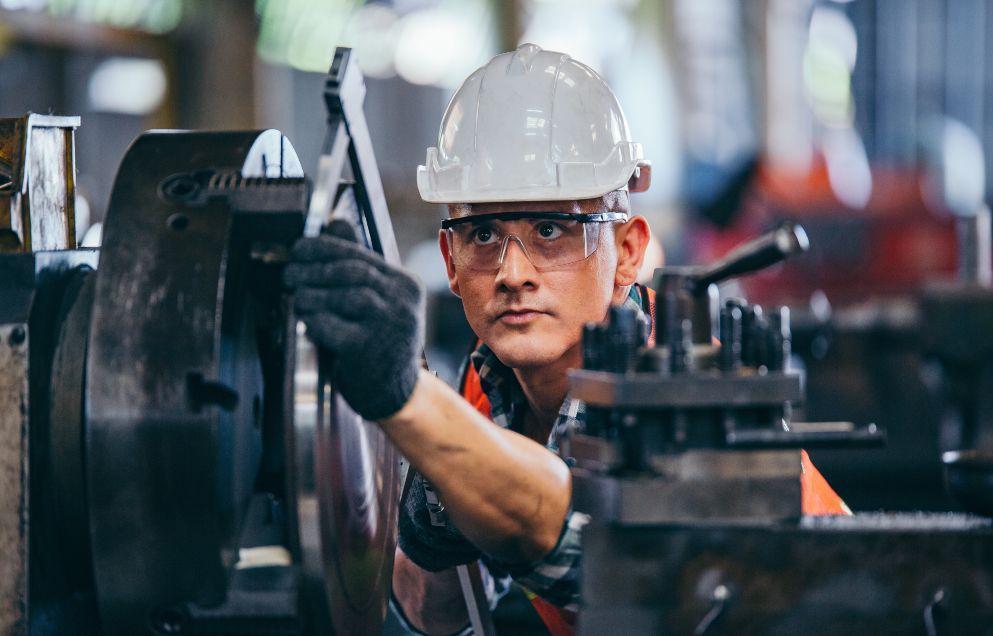Government promises more support for UK's 'vital' steel industry
Written by Jack Durrant, Head of SME and Digital Trading, BA (Hons), FCII.
Following the decision earlier this year to step in and rescue British Steel, Chancellor Rachel Reeves pledged the government's continuing support for the British steel industry.
And it's now putting its money – a certain amount, at least – where its mouth is. Alongside energy and cyber, steel is one of three industries to be designated as ‘nationally important to protecting UK national security’.

As a result, they’re all set to benefit from new government procurement rules that will give preference to UK suppliers when issuing contracts.
Current procurement rules require public sector buyers to consider bids from overseas suppliers that can undercut UK firms. However, central government departments will now be told to consider UK-made steel for all public projects and use exemptions to the buying rules wherever possible to support the UK's steelmakers.
"This is the latest win for our steel strategy, supporting jobs across the UK and building on the launch of our modern industrial strategy which will cut energy costs for steel firms," said industry minister Sarah Jones.
"By strengthening our procurement to back British industry, we’ll not only bolster national security but drive growth by filling up companies’ order books across the UK."
Meanwhile, the government is also looking for input from businesses across the steel supply chain as to how best shape future steel trade protections.
The current UK steel safeguard measure ends in June 2026 and can't be extended. And while the government says temporary safeguard measures may address sudden import surges and help industry adapt to new trading environments, the challenges currently facing the steel industry demand longer-term solutions.
"Thanks to our deal with the United States, all Section 232 tariffs on UK steel will be removed – while producers in other countries still face tariffs of up to 50 per cent. But we’re not stopping there," says Business and Trade Secretary, Jonathan Reynolds. He went on to add: "We will not sit idly by while cheap imports threaten to undercut UK industry, so we are inviting industry to shape the next phase of our trade defences so we can provide robust support and ensure a fair and competitive market."
In the meantime, new trade measures will adjust how much steel countries around the world can send to the UK, strengthening existing protections against spikes in foreign imports.
The government has stated that the changes are designed to slow future increases, cap certain import levels and tighten country-specific limits – ensuring that UK steel producers won’t be undercut while still making sure the UK has a steady and reliable supply.
There's now a 15 per cent cap on the use of the ‘other countries’ quota for galvanised steel by a single country, rather than the 40 per cent cap initially proposed by the Trade Remedies Authority (TRA).
The carry-over of unused quota between quarters – where countries that had not exported all their allowance of steel to the UK during a three-month period could then roll the allowance over to the next period – has been scrapped.
Countries with individual quotas will no longer be able to use any unused 'other countries' quotas in the last quarter.
And the annual increase in the tonnage that can be imported will be raised by just 0.1 per cent rather than the expected three per cent annual rise.
The announcements have been welcomed by the industry, with Russell Codling, Sales Director of Tata Steel UK, saying “All in all this is a great outcome, and shows the Secretary of State has listened to us, and understands the need for action to protect the UK steel industry."
And there's likely to be a lot more support to come, with the upcoming steel strategy promising to bring even further growth and investment in the sector.
While the details have yet to be revealed, the Government says it's committing up to £2.5 billion through the National Wealth Fund (NWF) and other routes – on top of the existing £500 million investment in the building of an electric arc furnace (EAF) at Tata Steel UK’s Port Talbot site.
It's now considering the viability of technologies for the production of primary steel, including direct reduced iron (DRI), stimulating demand for domestically produced steel and working on the timely availability of suitable sites.
Electricity prices are also under consideration, along with decarbonisation and the use of scrap steel. And of course, research and development together with skills training.
"This government is unapologetic in our support for the UK steel sector – it underpins Britain’s industrial strength, our national security, and our status as a global power," says Reynolds.
"We’ve taken decisive action to protect the UK market and level the playing field, and we’ll go further with our new steel strategy to build a stronger, more competitive future for British steel making it central to our plan for change."
As the UK government doubles down on its commitment to revitalising the steel industry, new procurement rules and strategic investments are creating unprecedented opportunities for domestic suppliers. At Howden, we’re proud to support the backbone of British industry with innovative insurance solutions that support your business's efficiency and growth.
Find out more about how Howden supports manufacturing businesses – Manufacturing insurance